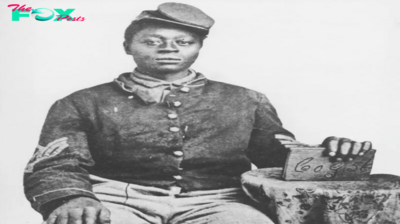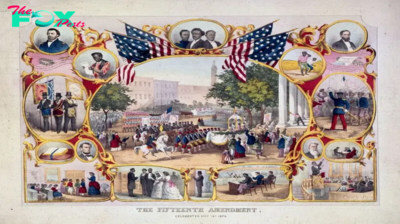History
The Origins of Friday the 13th
It’s the first Friday the 13th of 2024, undoubtedly seen as one of the most unlucky days of the calendar year. This year will see the date occur twice, with the next one in December. Friday the 13th is known to be a day of bad luck, but how it got its “spooky” reputation dates back centuries, although an exact time frame isn’t clear.
The New-York Historical Society says the origin can be partially traced back to Jesus’ Last Supper. The story goes that 13 guests attended the Last Supper—Jesus Christ and his 12 apostles—and the next day, Good Friday, was the day of Jesus’ crucifixion.
From this, superstitions rose among Christians that it was a table of 13 that “courted death,” the New York Historical Society says. The superstition was echoed in parts of Europe in the 1690s, with some believing that it was unlucky to have 13 people around a table or in a group, according to the BBC.
Interestingly, the number 12 is often seen in Western cultures as a sign of “completion”— Jesus’ 12 apostles, the 12 months of the years, the 12 zodiac signs. The next number, though, is widely seen as unlucky.
There are other instances of death that some use to reify the examples of the unlucky Friday, the 13th, including the legend that more than 100 of the Knights Templar are believed to have been tortured and killed by France’s King Philip IV on Friday, Oct. 13, 1307.
Fear of the number 13 has even got its own name—triskaidekaphobia.
Friday the 13th is not unlucky everywhere in the world though. In Spain, Tuesday the 13th is the day to fear, specifically due to its connection to Mars, the Roman God of war and destruction, and in Italy, 17 is the number associated with fear because the Roman numeral XVII (17) can be rearranged to spell “VIXI,” which means “my life is over” in Latin, according to National Geographic.
-

 History1d ago
History1d agoHow Celebrities Changed America’s Postpartum Depression Narrative
-

 History2d ago
History2d agoThe Woman Whose Crusade Gave Today’s Book-Banning Moms a Blueprint
-

 History6d ago
History6d agoHow Black Civil War Patriots Should Be Remembered This Veterans Day
-

 History1w ago
History1w agoThe Democratic Party Realignment That Empowered Trump
-

 History1w ago
History1w agoWhy People Should Stop Comparing the U.S. to Weimar Germany
-

 History1w ago
History1w agoFlorida’s History Shows That Crossing Voters on Abortion Has Consequences
-

 History1w ago
History1w agoThe 1994 Campaign that Anticipated Trump’s Immigration Stance
-

 History1w ago
History1w agoThe Kamala Harris ‘Opportunity Agenda for Black Men’ Might Be Good Politics, But History Reveals It Has Flaws

















